35+ Sample Home Inspection Reports
-
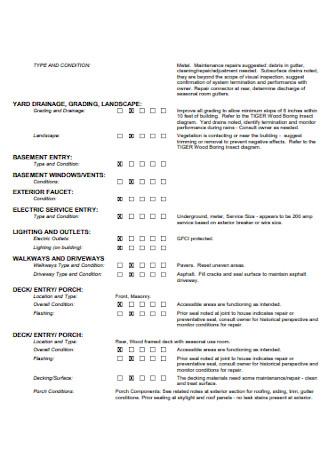
Sample Home Inspection Report
download now -
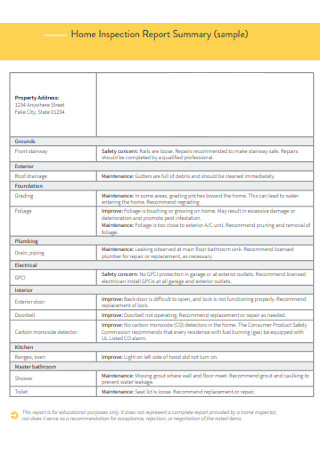
Home Inspection Report Format
download now -
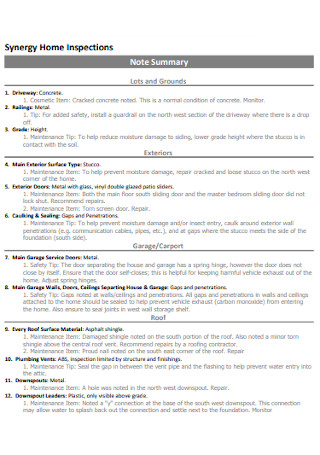
Synergy Home Inspection Report
download now -
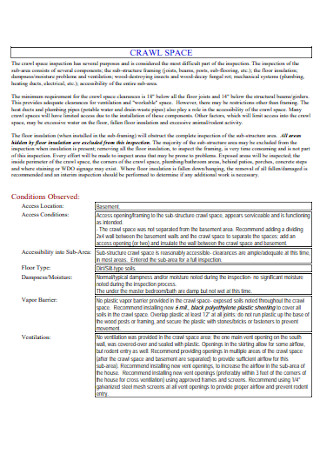
Confidential Home Inspection Report
download now -
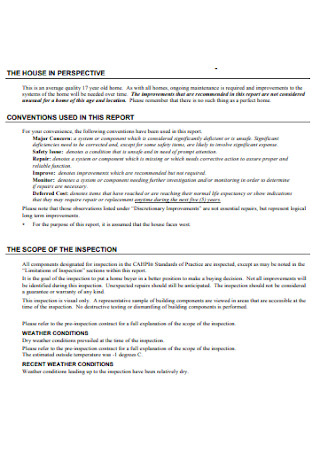
Home and Building Inspection Report
download now -
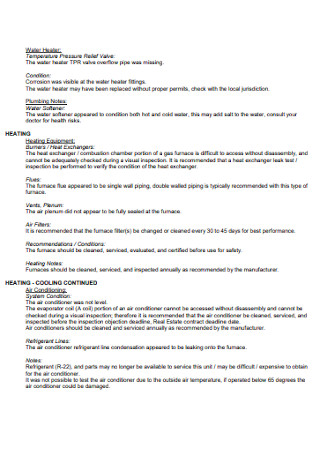
Basic Home Inspection Report
download now -
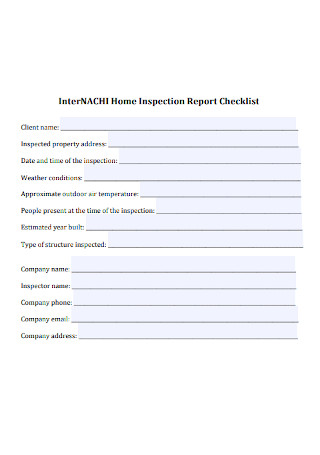
Home Inspection Report Checklist
download now -
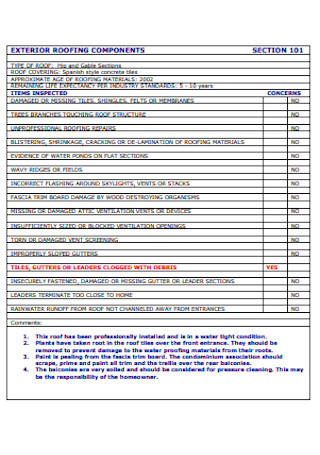
Standard Home Inspection Report
download now -
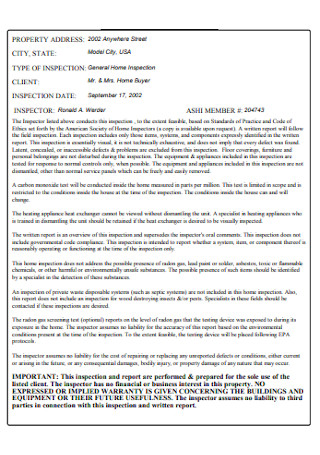
General Home Inspection Report
download now -
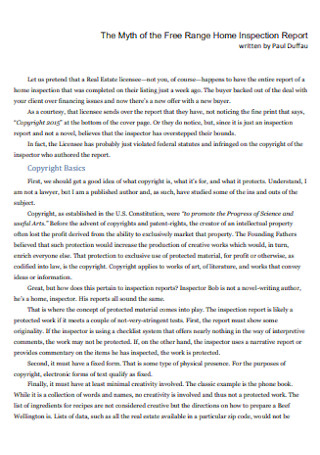
Free Range Home Inspection Report
download now -
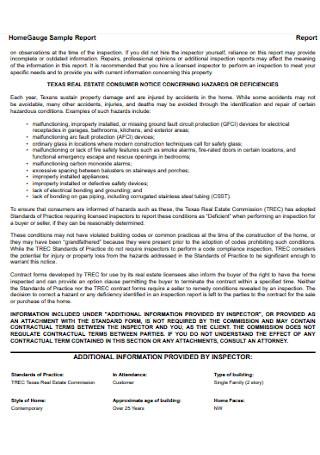
Property And Home Inspection Report
download now -
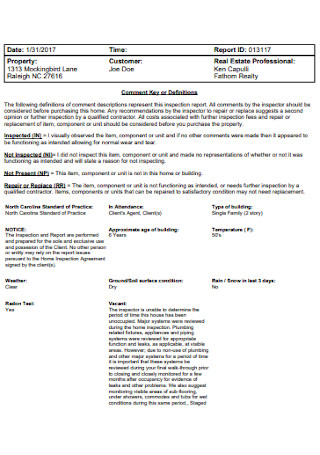
Home Inspection Report Example
download now -
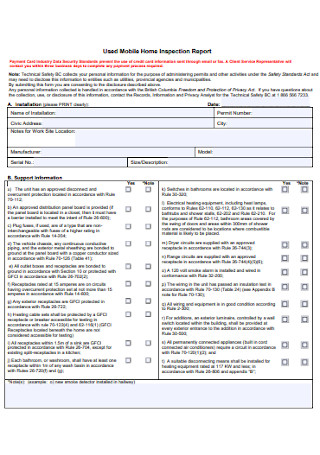
Used Mobile Home Inspection Report
download now -
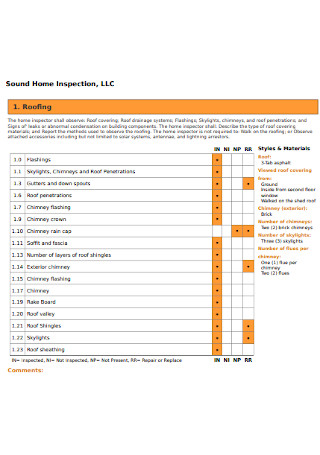
Sound Home Inspection Report
download now -
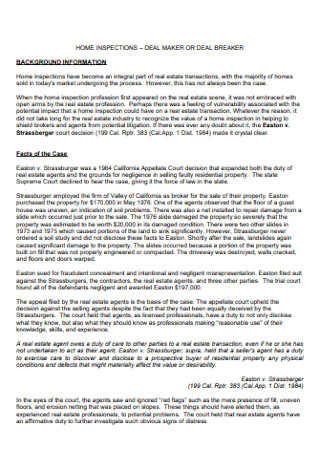
Home Inspection Report Template
download now -
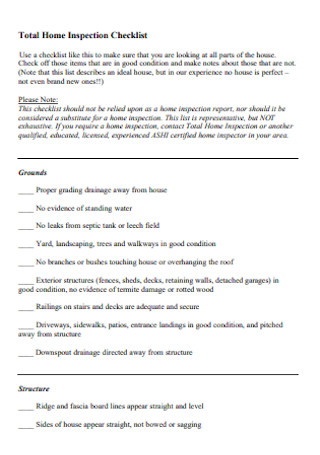
Total Home Inspection Report Checklist
download now -
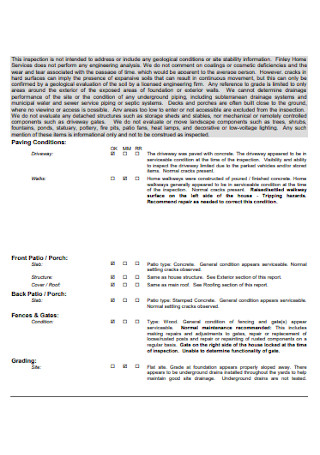
Home Ground Inspection Report
download now -
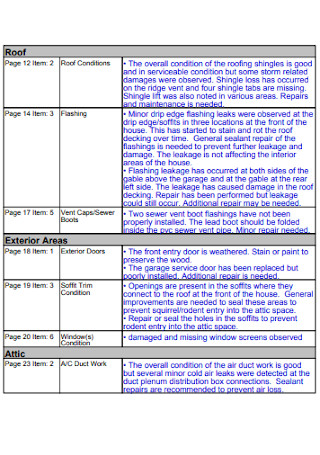
Simple Home Inspection Report
download now -
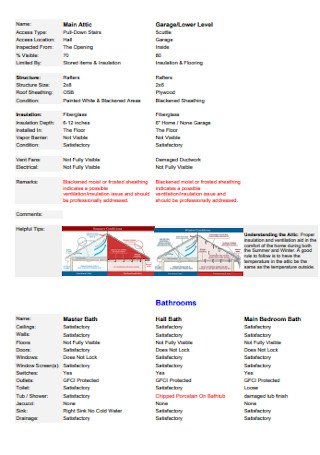
Legal Home Inspection Report
download now -

Standard Home Inspection Report
download now -
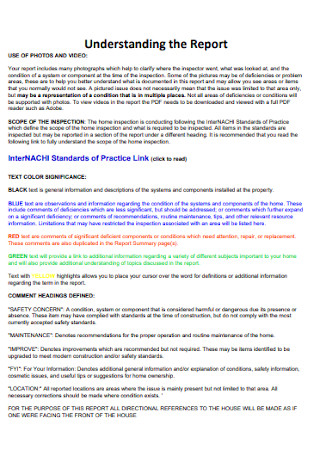
Home Inspection Understanding the Report
download now -
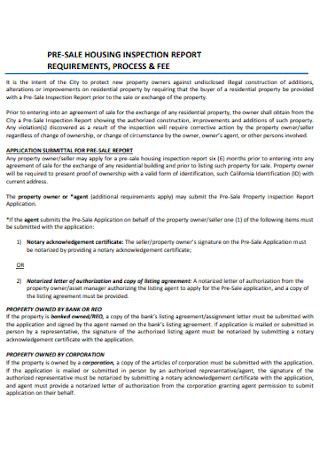
House Sale Inspection Report
download now -
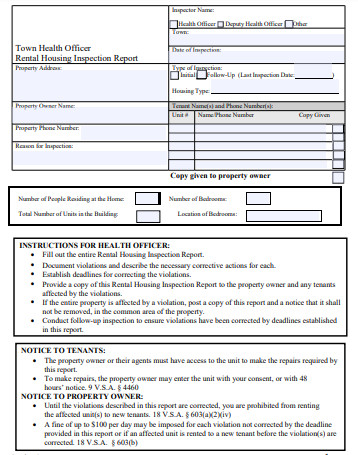
Rental Housing Inspection Report
download now -
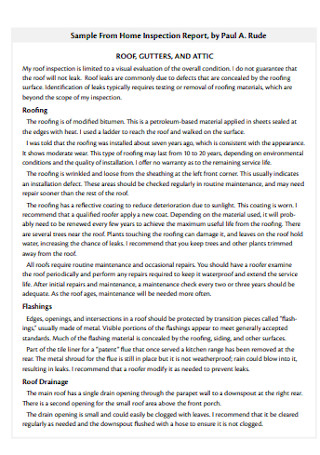
Sample From for Home Inspection Report
download now -
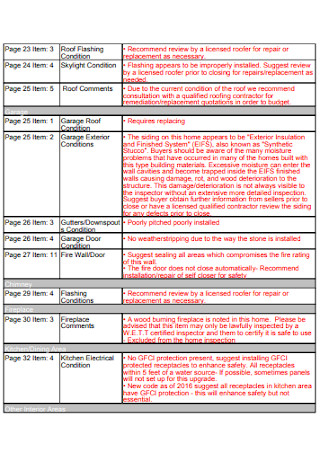
Printable Home Inspection Report
download now -
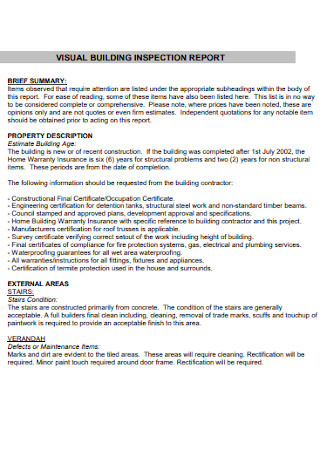
Home Building Inspection Report
download now -
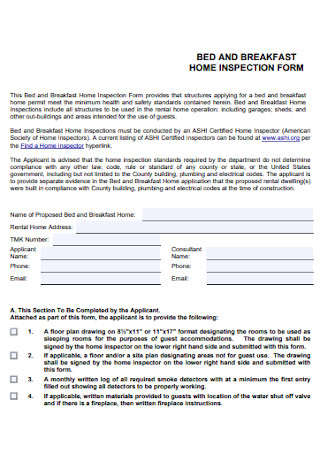
Breakfast and Home Inspection Report
download now -
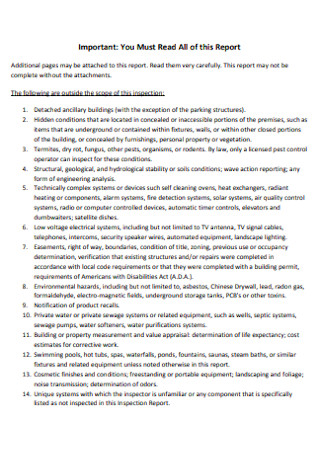
House and Property Inspection Report
download now -
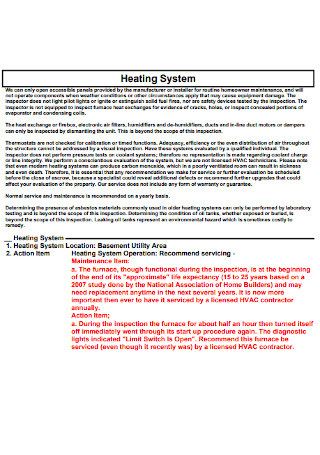
Home Repair Inspection Report
download now -
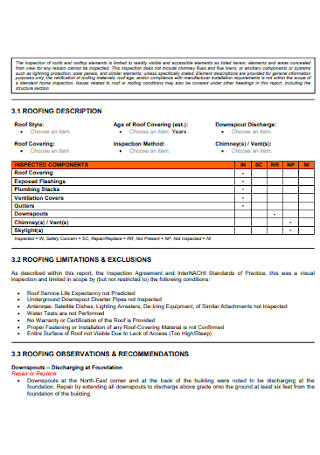
Home Inspection Services Report
download now -
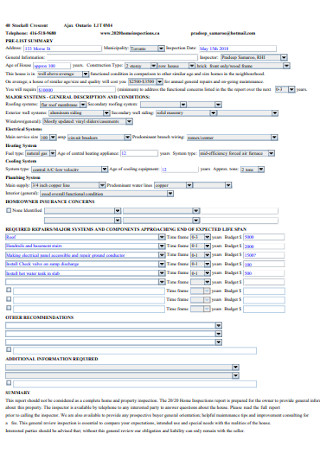
Home Inspection Report Form
download now -
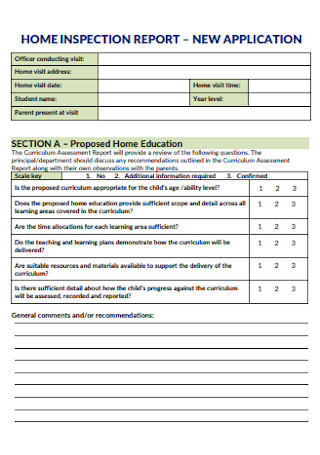
Home Inspection Application Report
download now -
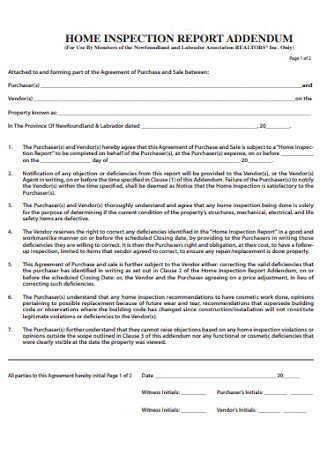
Home Inspection Report Addendum
download now -
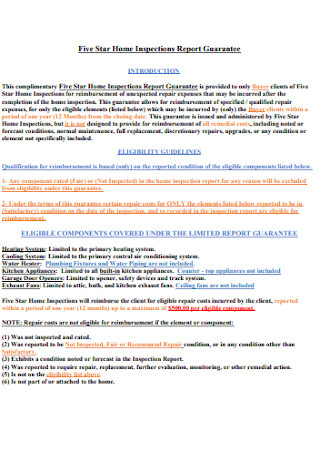
Five Star Home Inspections Report
download now -
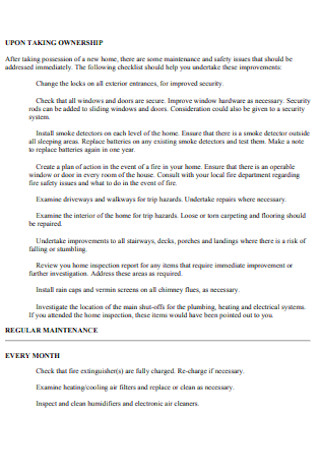
Real Estate Home Inspection Report
download now -
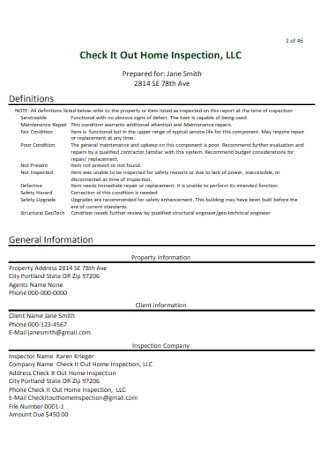
Check It Out Home Inspection Report
download now
FREE Home Inspection Report s to Download
35+ Sample Home Inspection Reports
What is a Home Inspection Report?
Top Three Considerations During Home Inspection
How to Write a Home Inspection Report
What To Do While Waiting for the Home Inspection Results
FAQs
Who pays for the home inspection?
How long does a home inspection take?
Should buyers attend the home inspection?
Can home repairs be requested from a seller?
Are fixes mandatory after a home inspection?
What is a Home Inspection Report?
Property or home inspection is a non-invasive visual examination of the interior, exterior, structures, foundations, and other major components of a house building. In the eyes of a home inspector, they will be able to see any underlying issues with the property. It is a necessary step in purchasing a new home in a real estate transaction to ensure that the home buyer is aware of the status of the house that they will purchase and make an informed decision about it. The whole process of a home inspection is to identify any components or systems that may be defective or unsafe thereby determining the integrity of the home.
After inspecting the property, the home inspection results are often released in a written format–the home inspection report. The home inspection report is a written document from a home inspector delivered after the completion of a home inspection. It can be anywhere between 15 to 70 pages long depending on the findings of the home inspector to ensure that every nook and cranny of the home is well documented and every inch is covered.
So, before closing a homeownership deal, as a buyer, make sure to have an inspector check your home and give you an inspection report.
Top Three Considerations During Home Inspection
A home inspection is an integral part of the home buying process and a stunning 86% of home inspections find something that needs to be fixed. It examines the ins and outs of a home and its condition. Inspectors specifically look for defects and determine the integrity of the house potential buyers are eyeing. Inspectors must know what to look for during a home inspection. Here are the top three crucial categories that inspectors should evaluate during a home inspection:
House Structure
The structural integrity of the home is one of the most important components that will determine house safety. Inspectors should check if the house is structurally sound and has strong structural components. If there is something wrong with the home’s structure, the general rule is not to buy it.
Safety
Safety issues are also one of the main categories that have to be looked at and considered during a home inspection. Home components and systems such as electrical wirings, broken windows, and heating, ventilation, and air conditioning (HVAC) systems are some of the considerations that should be looked at. If there are any safety issues, buyers can submit a repair request to the seller or ask for an appropriate repair credit based on the estimates of a professional.
Deferred Maintenance
Leaky faucets, old appliances, and weathered roofs are some examples of deferred maintenance items. These are items that will eventually need to be replaced so that house quality is maintained or improved. This is often present when buying already lived-in homes. If the items are worn or broken than what is expected, they can be included in the repair request or credit submitted to the seller.
How to Write a Home Inspection Report
While home inspections follow the same general format, no two reports are the same. They can be similar, but not identical, especially for homes that have already been lived in. So, after examining the house, you can start writing your own inspection report. Here’s how you can get started with it.
Step 1: Provide General Information About the House Inspection
Make an introduction about the house in the first few pages of the report. Introduce the property address, inspection details as mandated to the state’s standards of practice, and home inspector information as well as key takeaways, comments, and definition of terms. Home inspections should also include the weather conditions during the day of the inspection, disclose the people present during the inspection, and which areas of the house were accessible and inspected.
Definition of terms will help first-time homebuyers understand what every element of the report means and provide an explanation of what each term or symbol used throughout the report means. Each symbol or code will identify and represent the severity of each issue found in the home.
Step 2: Write a Detailed Assessment About the House
After writing a home introduction, the bulk and majority of the report should come from the detailed assessment of every system and component of the house. The home inspection report should cover every inch of the property–the interiors, exteriors, structures, and other fundamental elements of a home.
Home inspectors are trained to examine houses for any underlying issues that can become a big problem in the long run and the report should explain and provide in-depth information as to why it is an issue and why it is important to address it immediately. The home inspection report should also have the inspector’s recommended course of action for every safety concern that they found. However, the report will not contain how to specifically fix these issues or problems that were found within the home for each system.
Step 3: Annotate Photos of Reported Problems
Inspectors typically take annotated photos when they spot an issue or potential problems to include in their report. The buyer and the seller can refer to these photos when going over the report and prepare their negotiations. Make sure to include a thermal imaging radiometer to check portions and surfaces of both the interior and exterior structure. This will help indicate if there are any issues with the moisture, electrical components, ventilation, or insulation of the home.
Potential buyers, homeowners, or hired professionals can easily identify which parts of the home need repairs with a single look at the photo. These pictures will also serve as a reference for when the task is done.
Step 4: Write a Summary and Rating for Each Issue
As you reach the end of the report, you should allocate the last few pages of it to summarize and rate each home issue that was identified in the report. The house inspection report should also be accompanied by the symbols found at the beginning of the report for convenience and easy reference of the home inspection results.
This part of the home inspection report should not be skipped as this is an important document during the negotiation process. Any safety concern and defects for potential repairs such as termite or pest report will give buyers more leverage while general safety concerns are at low priority.
Home inspectors, when writing their narrative report, should not include any costs associated with the repairs or defects. They should remember that all they need to do is to inspect the home and not repair it as it will be considered a conflict of interest.
What To Do While Waiting for the Home Inspection Results
Once the home inspection is done, homebuyers and sellers need to wait for the final report before starting with the negotiations. Buyers may use the contents of the report to negotiate the price of the property that they are eyeing to buy. However, the home inspection results may take a few days or even weeks before buyers can finally get their hands on it.
As they await the home inspection report, there are several ways to prepare for the negotiations without seeing the report for yourself. Here are some things that you can do while waiting for the availability of the report:
Be Present for the Inspection
During the inspection, anyone is allowed to observe. This is the homebuyers’ chance to ask questions and get a general idea of the defects or possible safety concerns, if there are any, of the house. Homebuyers can also get more details on whether issues found are severe or minor and if these would require major repairs.
Be Ready for Negotiations
It is almost always impossible for home inspectors to not find any issues with the homes and these issues are used as leverage to negotiate a lower final sale price. There will always be at least some defects they can find that may or may not matter during the sale. However, just to be sure you can get through the negotiations, you may consult or hire a trusted and experienced real estate agent to help you prepare for a post-inspection strategy.
Trust Only the Professionals
Inspectors, although they are experts at finding home defects, are still humans and can make mistakes. If they see anything that looks suspicious and a possible safety concern, they will flag it and jot it down in their notes. You may or may not hire a professional or technical expert to confirm the severity of the issue noted. However, it is always advisable to take a second look and get another expert opinion before home sellers issue any repair credits for the buyer on the repair projects.
FAQs
Who pays for the home inspection?
Home inspections are often requested by the buyer so in general, it is their responsibility to coordinate with an inspector and pay for the inspection and report fees. Once the inspection results are out, buyers have the right to either share the results with the seller or not at all. But if buyers do want to negotiate the deal, they may use the home inspection findings as leverage and provide the necessary documentation to the seller.
How long does a home inspection take?
No homes are the same, so inspection varies widely. However, the length of the home inspection is dependent on the four factors such as the size of the house, number of defects found, thoroughness of the inspector, and the helpfulness of the owner or seller during the preparation of the inspection.
Should buyers attend the home inspection?
There is no rule that buyers can’t attend the inspection and it is another opportunity to explore the house more. However, they would need to ask the inspector first if it is all right as some inspectors do object to having an audience when they’re working.
Can home repairs be requested from a seller?
After receiving the home inspection report, buyers have to submit a repair request backed up by the findings, within the given period. Requests for home repairs should also be sent before finalizing the deal.
Are fixes mandatory after a home inspection?
Home sellers have the right to comply with the request, attempt to negotiate a compromise, or completely deny the request for repairs. Should the seller refuse to repair the home before the final sale of the home, buyers have the option to negotiate for a lower price or walk away from the transaction.
A good home inspection report comes from a well-trained, certified, and professional home inspector. Knowing what items should be evaluated during the inspection is a piece of must-have knowledge for any inspector during the inspection. Home inspection reports must include both a narrative description of their findings as well as photographic evidence of the issues that they found at the home. Their inspection result should also detail their findings to help buyers make the best and informed decision regarding their future homes.
